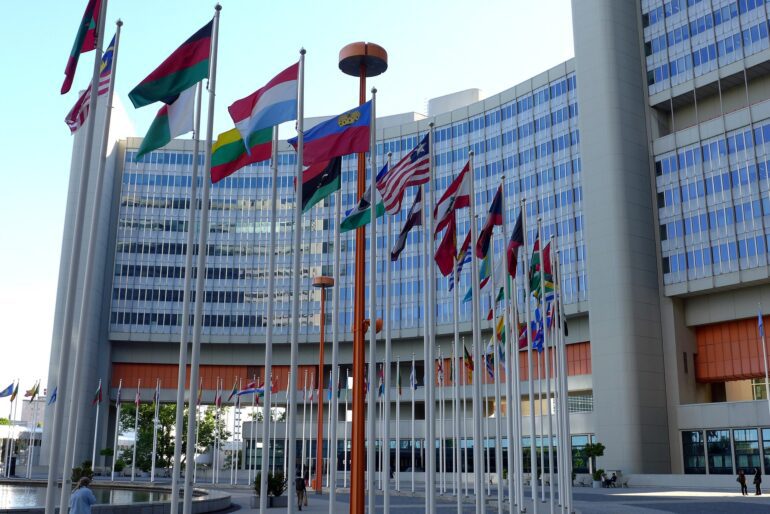TL;DR:
- AI expert Gary Marcus is consulting with UN and UNESCO officials on creating an international agency for regulating AI technologies.
- Marcus believes progress has been remarkable but acknowledges the need to please and balance multiple parties involved.
- The agency aims to restrict AI-generated misinformation and mitigate risks associated with AI advancements.
- Marcus envisions an inclusive agency that solicits public opinion and communication with different sectors of society.
- Governments and individuals have shown significant interest and offered assistance in forming a global AI regulatory body.
- Incorporating public feedback and securing funding are key challenges to establishing the agency.
- Marcus has experimented with using Twitter to gather community input on AI regulation.
- Financial support from philanthropists is crucial to initiate the agency’s operations.
- Despite the challenges, Marcus believes it is the right time to pursue the establishment of an international AI agency.
Main AI News:
An AI expert, Gary Marcus, is actively engaged in consultations with United Nations (UN) and United Nations Educational, Scientific and Cultural Organization (UNESCO) officials on the establishment of an international agency responsible for regulating artificial intelligence (AI) technologies. With his extensive experience and as the host of the popular AI-focused podcast “Humans vs. Machines with Gary Marcus,” Marcus believes that organizations like the UN and UNESCO have been contemplating this issue for an extended period.
Delving into the matter further, Marcus acknowledges the complexity of the task, recognizing the need to navigate the interests of multiple stakeholders. The intricate nature of the subject requires a discreet approach, carefully attending to the concerns and demands of various parties involved. Despite these challenges, Marcus asserts that remarkable progress has been made toward this goal.
One of the primary objectives of the proposed international agency is to address the potential risks associated with AI’s rapid advancement, particularly AI-generated misinformation. Marcus emphasizes that malicious entities could exploit AI software to propagate vast amounts of misleading information within a single day or manipulate individuals into engaging in cybercrime. By regulating and monitoring AI technologies, the agency aims to mitigate such risks.
Importantly, Marcus envisions an agency that actively seeks public input as an integral part of its decision-making processes. In his opinion, an international organization responsible for AI regulation cannot solely consist of privileged and influential individuals making decisions on behalf of the global community. Marcus believes that effective communication channels with diverse sectors of society and across the globe are crucial for ensuring transparency and inclusivity.
Since publicly introducing the idea of establishing a global body to regulate AI, Marcus has received substantial interest and support from various governments and individuals. The cognitive scientist highlights the numerous conversations and offers of assistance he has already received, indicating a growing recognition of the need for an international approach to AI regulation.
Despite the enthusiasm surrounding the initiative, Marcus acknowledges the challenges that lie ahead. Incorporating public feedback and opinions into the decision-making processes of an international AI agency poses a significant challenge that requires careful consideration. In a creative move to explore the potential avenues for public engagement, Marcus has utilized Twitter as a platform for soliciting input from the AI community, an experiment that has yielded valuable insights.
Nevertheless, establishing a global AI regulatory body necessitates substantial financial resources. Marcus emphasizes the need for financial support, possibly through philanthropic contributions, to kickstart the agency’s operations. He recognizes that securing adequate funding remains a crucial aspect of the initiative’s viability.
Marcus concludes by acknowledging that creating an international AI agency is a formidable undertaking that will require significant effort and time. Despite the magnitude of the task, he believes that the current climate is ripe for such an endeavor, underscoring the importance of addressing the challenges and seizing the opportunity at hand.
Conlcusion:
The efforts to create an international agency for regulating artificial intelligence technologies, as spearheaded by AI expert Gary Marcus, hold significant implications for the market. This development reflects a growing recognition of the need to address the potential risks and challenges associated with AI advancements.
By restricting AI-generated misinformation and promoting responsible AI practices, the market can expect increased trust and credibility in AI technologies. The emphasis on public input and inclusivity also signifies a shift towards a more transparent and collaborative approach in decision-making processes.
Moreover, the interest and support from governments and individuals highlight the market’s readiness to embrace a global regulatory framework for AI. While challenges such as incorporating public feedback and securing funding lie ahead, the potential establishment of an international AI agency signals a new era of accountability and regulation in the market, fostering a safer and more sustainable environment for AI innovation and adoption.

